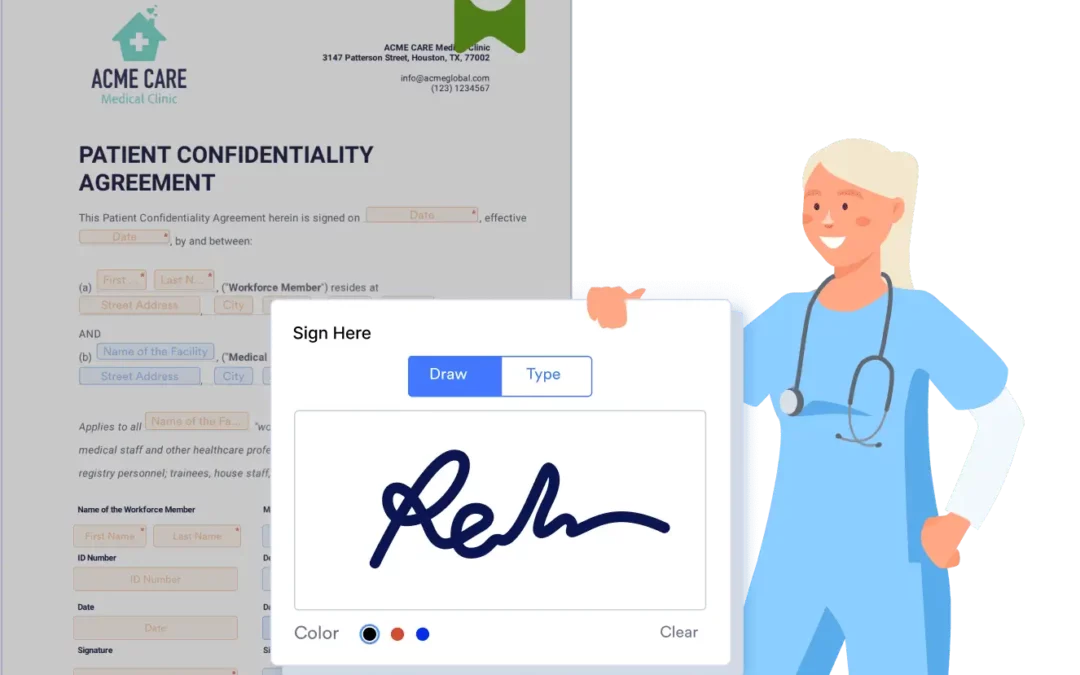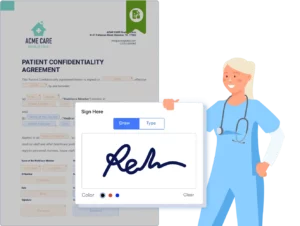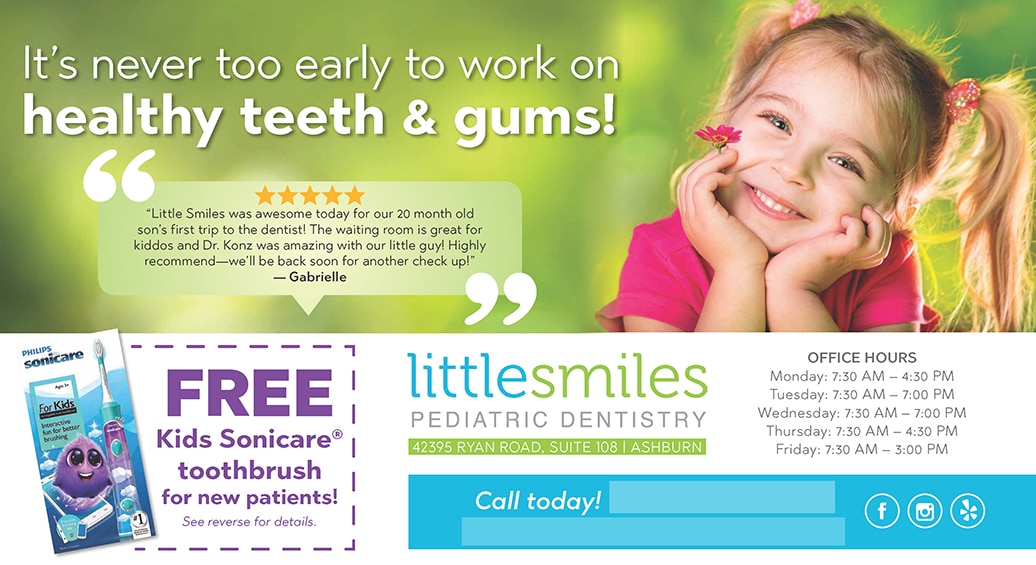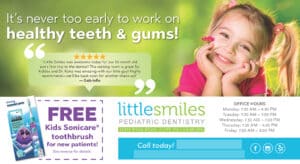
by Todd Boak | Aug 18, 2023 | Dental Marketing, healthcare marketing
In an age where personal data is constantly exchanged and stored online, maintaining the privacy and security of sensitive information has become a paramount concern, especially in the healthcare industry. The Health Insurance Portability and Accountability Act (HIPAA) serves as a cornerstone for safeguarding patient information. HIPAA compliance isn’t just a legal obligation; it’s a moral responsibility that extends to every touchpoint of healthcare, including your website forms. In this article, we’ll explore the significance of HIPAA compliant website forms, why they are essential for healthcare providers, and how they are particularly crucial in the dental field.
What are HIPAA Forms?
HIPAA, enacted in 1996, aimed to protect the confidentiality and security of healthcare information. It establishes rules and regulations to ensure that patient data remains private, whether it’s being shared between healthcare providers, stored electronically, or accessed online. HIPAA compliant forms, in the context of a website, refer to digital forms that adhere to these strict privacy and security standards when handling patient information.
These forms are designed to collect sensitive data, such as medical histories, insurance details, and contact information, while maintaining the highest level of data protection. HIPAA compliant forms implement encryption, authentication, and access controls to prevent unauthorized access or data breaches. They are essential for healthcare providers who need to interact with patients online, streamline administrative processes, and maintain the trust of their patients.

Do I Need HIPAA Forms on My Website?
If you’re a healthcare provider with a website that collects patient information, the answer is a resounding “yes.” Incorporating HIPAA compliant forms onto your website is not just a good practice; it’s a legal requirement. HIPAA mandates that any entity handling protected health information (PHI) must ensure its confidentiality, integrity, and availability. Failing to comply with these regulations can result in severe penalties, including substantial fines.
When patients provide their personal and medical information through your website forms, they’re entrusting you with their sensitive data. Utilizing HIPAA compliant forms demonstrates your commitment to safeguarding their information, enhancing their confidence in your services. Non-compliance not only puts your patients’ trust at risk but also exposes your practice to legal liabilities.
HIPAA Compliant Dental Forms
In the dental field, the importance of HIPAA compliant website forms is just as critical, if not more. Dental practices gather a plethora of patient data, ranging from medical histories and dental records to insurance information. This wealth of information requires stringent protection to ensure patient privacy and comply with HIPAA regulations.
Imagine a patient searching for a new dentist online. They come across your dental website and decide to schedule an appointment using your online form. Without HIPAA compliance, their confidential data could be vulnerable to cyberattacks or unauthorized access. This scenario not only jeopardizes the patient’s personal information but also tarnishes your practice’s reputation.
Moreover, dental practices often collaborate with other healthcare providers. HIPAA compliant dental forms ensure secure sharing of patient information among different healthcare entities, enabling a seamless continuum of care while maintaining the highest standards of data protection.
Summary
In today’s digital era, HIPAA compliant website forms have become indispensable for healthcare providers, including those in the dental field. These forms embody a commitment to patient privacy, data security, and ethical practice. They go beyond legal requirements, fostering trust between healthcare providers and their patients. By prioritizing HIPAA compliant forms on your website, you not only adhere to the law but also showcase your dedication to providing top-notch care.
If you’re a healthcare professional looking to integrate HIPAA compliant forms onto your website, consider partnering with Harris & Ward. Their specialized forms are tailor-made for the healthcare industry, ensuring the highest level of data security and compliance with HIPAA regulations. Learn more about our HIPAA compliant forms. Safeguard your patients’ information and maintain the integrity of your practice by choosing the best in HIPAA compliant forms.

by Todd Boak | May 2, 2023 | healthcare marketing
The Ultimate Guide to Choosing a Healthcare Marketing Agency
Here’s a not-so-fun fact. A recent study has revealed that Doctors spend more time on administrative tasks than patient care.
If you run a private practice, the last thing you have time for is spearheading your own marketing. Hiring a healthcare digital marketing agency can allow you to implement effective strategies that drive fresh business and help you keep up with the competition.
But, you need to pick your healthcare marketing agency with care.
Currently, there are over 161,000 digital marketing agencies in the US, all vying for business. Out of all types of contractors, marketing agencies are adept at selling their services and convincing prospective customers that they’re worthy of their business.
However, the reality is that not all marketing agencies are created equal, and most don’t have experience in the healthcare marketing space.
Healthcare marketing is subject to unique requirements that a lot of marketing agencies aren’t even aware of. The healthcare industry is also evolving at a rapid pace, and your marketing strategies need to keep up with this.
So how do you go about finding a digital marketing agency as a healthcare provider?
Continue reading to find out everything you need to consider in this ultimate guide to choosing a healthcare marketing agency.

Choose an Agency That Specializes in Healthcare Marketing
You probably saw this coming, but the first thing you should look for in a marketing agency is specialization. A large portion of marketing agencies target multiple industries.
Instead of specializing, they offer general marketing services for a range of business types.
This is fine for a lot of small businesses, but it isn’t a recipe for success if you run a primary care, dental, chiropractic, or veterinary practice.
Firstly, generating awareness and trust is usually far harder for medical care providers. Selecting a medical provider is a much larger decision than choosing a new restaurant to eat at, buying a new item of clothing, or trying a new dry cleaner.
The conversion cycle from lead to patient is far longer in the medical field. The medical facility needs to establish a high level of trust before a lead will convert. This is often easier said than done.
Compliance Concerns
The medical industry is also subject to more stringent regulations. For instance, HIPPA prevents the sharing of patient information.
This can have far-reaching implications for marketing campaigns. Under the HIPPA Act, healthcare providers cannot share patient information unless they have explicit consent.
This applies to everything from:
- Social media posts
- Email marketing
- Websites and web hosting
Any emails that include PHI need to be encrypted. You also need to gain explicit authorization from patients before sending them emails.
All data gathered on your website must also be encrypted, including appointment requests and web forms. You must also have adequate safeguards in place to secure PHI, both for your website and CRM.
Website data that includes PHI should be stored on an encrypted server and have off-site backup.
If you hire a marketing agency that doesn’t have experience with HIPPA-compliant marketing, this could trigger fines and penalties.
Digital Marketing Results
Besides keeping you compliant, an agency that specializes in healthcare marketing will also be able to drive faster results.
When it comes to healthcare, you can’t assume that “marketing is marketing.”
Healthcare marketing is a specialized area that a new agency can’t learn on the job. Healthcare marketing companies and providers answer to higher standards than regular businesses.
Healthcare is also a highly personal service process. It requires a strong understanding of how to communicate answers to the patient public.
Thanks to these unique requirements, an agency that specializes in healthcare marketing will be able to generate far better results.
Here at Harris & Ward, our objective is to yield the highest quality support to healthcare organizations and medical professionals. We know that you as healthcare clients need to stay ahead of the curve to remain competitive in a constantly evolving market.
We continually monitor industry trends and pride ourselves on taking innovative healthcare marketing approaches. A key part of what we do is working closely with clients to make sure our services meet their needs and exceed their expectations.
Vet for Customized Solutions
The agency you choose shouldn’t just specialize in healthcare marketing. It should also offer customized solutions.
Not all practices and healthcare organizations are the same. Different practices and health systems have different needs and goals.
For instance, you might not need to increase patient volume. You may already have as many bookings as you can handle. Launching a cookie-cutter SEO campaign that’s aimed at generating new leads isn’t going to help your business.
Instead, you might be more focused on improving patient outcomes. Or maybe your main focus is to streamline your administrative process.
If so, optimizing your website or enabling telemedicine consultations might be more suited to your goals.
At Harris & Ward, one of the leading healthcare marketing agencies, we don’t believe in copy-and-paste campaigns. We know that every practice has its own unique needs. This is why we offer tailored, customized solutions. Whatever your goals, we have the resources and expertise to achieve your objectives.
Identify Your Marketing Goals
As we outlined above, it’s critical that you select a healthcare marketing agency that can achieve your specific marketing goals. But, what if you don’t know what these are yet?
One of the first steps to success in all types of marketing is to identify your objectives. What do you want your marketing or social media campaign to do for your business?
Here are some common examples of different healthcare companies’ marketing goals:
- Increased qualified leads
- Increased office visits
- Increased telemarketing consultations
- Increased physician reputation
- Increased online sales of a service or product
- Increased brand awareness
- Increased qualified organic traffic from search
- Increased demos with a sales team
Once you have identified your unique goals, this will inform which agency is the best fit. Ideally, you want to partner with an agency that has experience delivering the results you’re after.
If you’re not sure what your marketing goals should be, you can use this awareness gap to screen agencies. When you enter into initial discussions, ask potential agencies how they can help you identify key objectives.
If they brush over this question, this is a red flag.
Identifying campaign objectives is a critical component of a successful strategy, which is why we offer this service to many of our clients.
Find Out How They Measure Results
It doesn’t matter how clearly you identify your intended marketing results—if you can’t measure results, you have no way of analyzing the effectiveness of your campaigns.
This leaves you entirely in the dark, without any data to make improvements.
Make sure you ask potential marketing agencies how they measure results. How do they quantify results? Do they measure and report ROI?
You are the one investing in the intended results. If an agency can’t outline a roadmap to meaningful and measurable goals, we’d advise you not to move forward.
Also, be wary of pie-in-the-sky promises. If an agency is making flashy claims, this is another warning sign.
Instead, look for a marketing agency that sets realistic expectations and provides solid performance criteria.
Pick a Full-Service Healthcare Digital Marketing Agency
When comparing your marketing options, it’s almost always a good idea to pick a full-service agency.
Ideally, you want to partner with a healthcare marketing agency that can handle all your needs and more.
What you don’t want is an agency that only specializes in certain marketing areas. Even if the services might meet your current needs, over time, the limited range of services might impact your reach.
For instance, maybe you’ve already done all the branding and web development for your practice. All you need currently is SEO services.
But, what if you need to update your website in the future, or refresh your branding? You want to be able to rest easy knowing that the agency you’ve partnered with can handle both current and future needs.
Branding and content marketing should be a seamless system that’s optimized to drive results. This is why we offer the full suite of digital marketing services, including:
- SEO
- Branding
- Web design and development
- Photography and video
- Paid advertising
- Local business listing
By offering everything you need, we can cater to every aspect of your brand strategy. This allows us to take a holistic approach to create the most comprehensive solution that includes everything from concept to conclusion. With us, you can rest assured that your strategies will be implemented effectively and efficiently.
Identify Their Core Competency
Sometimes it can be hard to distinguish a true full-service agency from one that offers a more limited set of services.
The term “agency” already implies a range of marketing services.
Some firms that are still in the early scaling stages adopt this term before they’ve reached their full scope. For instance, a graphic design service might decide to branch into other marketing services.
If you peel back the layers, you might find that they’re only focused on one or two main services.
In a lot of cases, agencies that are trying to expand resell white-label services from other providers.
This might be fine for some industries, but it’s not what you want as a medical practice. You need full transparency into who is doing your marketing to make sure they employ compliant practices.
Therefore, try to ascertain what an agency’s core competency is. Are they a graphic arts firm that recently started offering marketing services? Or a website developer that’s aiming to grow into a larger name?
Find out who their full-time people are and what they specialize in. Are you dealing with a full-service firm or a limited-scope business?
Multi-Channel Healthcare Marketing Is a Must
Another thing to vet for is multi-channel marketing. In today’s age, patients and consumers want a consistent experience across channels.
Reports reveal that 76% of consumers are frustrated by a lack of personalized messaging. The most common offender is out-of-context ads.
For instance, let’s say a banner ad for a dental practice is displayed to a consumer when they’re searching for pediatric information. Yes, it’s mildly related, but it’s not helpful to the consumer. The chances of them converting on that ad are just about zero. Instead, mismatched ads can even inspire annoyance.
This is just one example of how sloppy marketing can impact results.
If you want to build trust, you need to make sure your branding is consistent across all fronts. Including social media channels, paid ads, email marketing, etc.
To achieve this, you will need to work with a healthcare marketing agency that can implement your strategies across both outbound and inbound channels.
Prioritize Healthcare Marketing Agencies That Can Help You With Branding
Even if you already have your branding in place, it’s still a good idea to work with an agency that has experience with brand building. Brands should evolve over time in response to evolving customers.
If your branding was done 10 years ago, it might be time for a refresh. If you need to update your branding at any point, you want to know that your marketing agency will be up to the task.
Even more importantly, the agency you choose should deliver industry-informed branding. Branding is critical for all businesses, but it’s an especially sensitive area when it comes to healthcare. The wrong branding can erode trust and plummet conversions.
Look for a Track Record
Another thing to look for in a healthcare marketing agency is a proven track record. It’s easy to make glowing claims, but proof of results is another thing.
Testimonials and reviews are a good start, but they often don’t provide enough tangible details on campaign outcomes.
Here at Harris & Ward, we aim to truly empower business owners in the medical industry.
To give insights into how tailored strategies can work, we publish podcast case studies in our resource library. One example is our interview with Dr. Leonard Tau where we discuss review marketing.
Only Work With Experts
If you want to be seen as a trusted expert in your field, your marketing needs to be carried out by experts. You do not want your marketing handled by inexperienced teams that are learning on the job.
We pride ourselves on having extensive marketing experience with dental, chiropractic, and healthcare practices. This experience allows us to craft campaigns that give our clients a competitive edge in the web-based marketplace.
Evaluate Their Digital Experience
Nowadays, the lion’s share of marketing happens online.
Online marketing offers a better ROI and a more seamless channel for prospects to go down. A lead can easily flow from finding your blog through search to learning more about your services and booking an appointment.
Offline marketing still has its place, but the results tend to be less targeted and much harder to measure, track, and improve.
Because online healthcare marketing is so powerful, it’s essential that you pick an agency that has a strong array of digital capabilities and experience.
What you don’t want is an agency that’s been around for decades, and has only recently started dipping its toes into online marketing strategies.
Digital capabilities are especially critical in healthcare marketing agencies. Statistics show that 66% of internet users search online for information on specific medical issues and diseases. A further 44% use the internet to find doctors and health care providers.
Online marketing also offers healthcare providers a more cost-effective avenue. Currently, businesses recoup roughly $8 for every $1 spent on Google Ads. This is a far better ROI than most traditional marketing methods.
To get an idea of a potential agency’s capabilities, evaluate their track record in digital marketing. Are they experts in local search, SEO, and mobile optimization?
Web Design Services Are Important, Even if You Already Have a Website
If you already have a functional website, web design services might not be the first thing you look for in a healthcare marketing agency.
However, there will come a time when you need to maintain or upgrade your website. Ideally, business websites should be updated every 2-3 years. Regular updates improve functionality and help businesses stay current and connected to their target customers.
Websites for healthcare practices are no different. If anything, they can require more frequent maintenance.
For example, 88% of patients now wish to use telehealth for non-urgent matters.
If you want to include telehealth as part of your practice’s offerings, your website will need to be optimized to handle these bookings.
Custom Photo and Video Services Can Be Invaluable
Humans are highly visual, which is one reason why most websites include a lot of images. Roughly 70% of all of our sensory receptors are visual.
Stock photography is a go-to choice for a lot of websites in the healthcare industry. It fills the void and is usually inexpensive.
But, stock images can erode trust, something that’s at a premium in healthcare.
Stock photography doesn’t convey anything about your practice to patients. It doesn’t give them an idea of the environment, or the people in it.
If you want to stand out from the crowd, we’d highly recommend investing in custom photo and video resources for your marketing campaigns. If you partner with Harris & Ward, you can seamlessly access our photo and video services.
Our small business photographers will capture high-quality assets with minimal disruption to your business. You can reuse these assets anywhere you like to showcase your brand’s personality.
Look for a Partner, Not Just an Agency
As we’ve mentioned already, healthcare is a particularly challenging industry for marketers to crack. It’s complex, ever-evolving, trust is hard to generate, and buyer cycles tend to be slow.
If you want to launch a successful marketing campaign, you need to look for a partner, not just an agency. A partner who will work closely with you at all levels.
The healthcare marketing agency you pick should be large enough to offer a full range of services, but not so large that it can’t offer a personalized service.
Clarify Fee Structure Details
Financial surprises are the quickest way to sour a new business relationship. To avoid being hit by a bill you don’t expect, take the time to clarify fee structure details before moving forward with a potential agency.
Ask about the process of billing, budgets, and payment terms. Get a clear understanding of additional charges, rates, retainers, and fees. Also make sure that you’re both on the same page around things like approvals, authorizations, and change orders.
Watch Out for Red Flags
Last but not least, keep an eye out for any common red flags. We’ve covered a few of them already, but to recap, here are some of the common signs that an agency isn’t going to be the right fit:
- One-size-fits-all services (i.e., templated websites, no focus on your individual goals)
- Absolutes and guarantees
- Poor chemistry
Marketing is similar to medicine in that there aren’t any absolute guarantees. Yes, there are proven strategies, but an experienced marketer won’t irrevocably guarantee results.
If an agency communicates in absolutes, this can indicate a lack of experience. It can also indicate that they’re more focused on selling you the services that suit them best, rather than what’s right for your business.
Finally, if the chemistry isn’t good with a potential agency, this is enough reason to look further. Bad chemistry could indicate problems with their overall culture, or it could simply mean that they’re not a good fit for you.
Do You Need Tailored Healthcare Marketing Services?
Healthcare marketing has some unique challenges that other industries don’t face. Building trust is harder, conversions take longer, and there are multiple regulatory requirements to navigate.
Copy/paste marketing services can compromise your HIPPA compliance. Without a tailored approach, you also won’t achieve the results your business needs.
Are you looking for a healthcare marketing agency that has extensive experience in the medical industry? If so, we are the people to speak to.
Here at Harris & Ward, we specialize in catering to the needs of medical professionals. We offer a tailored approach, a full suite of services, and the highest quality support.
Our collective experience and passion enables us to create high-quality outcomes and tangible results. We provide everything you need to be successful online.
Contact us today to discuss your unique marketing needs.












